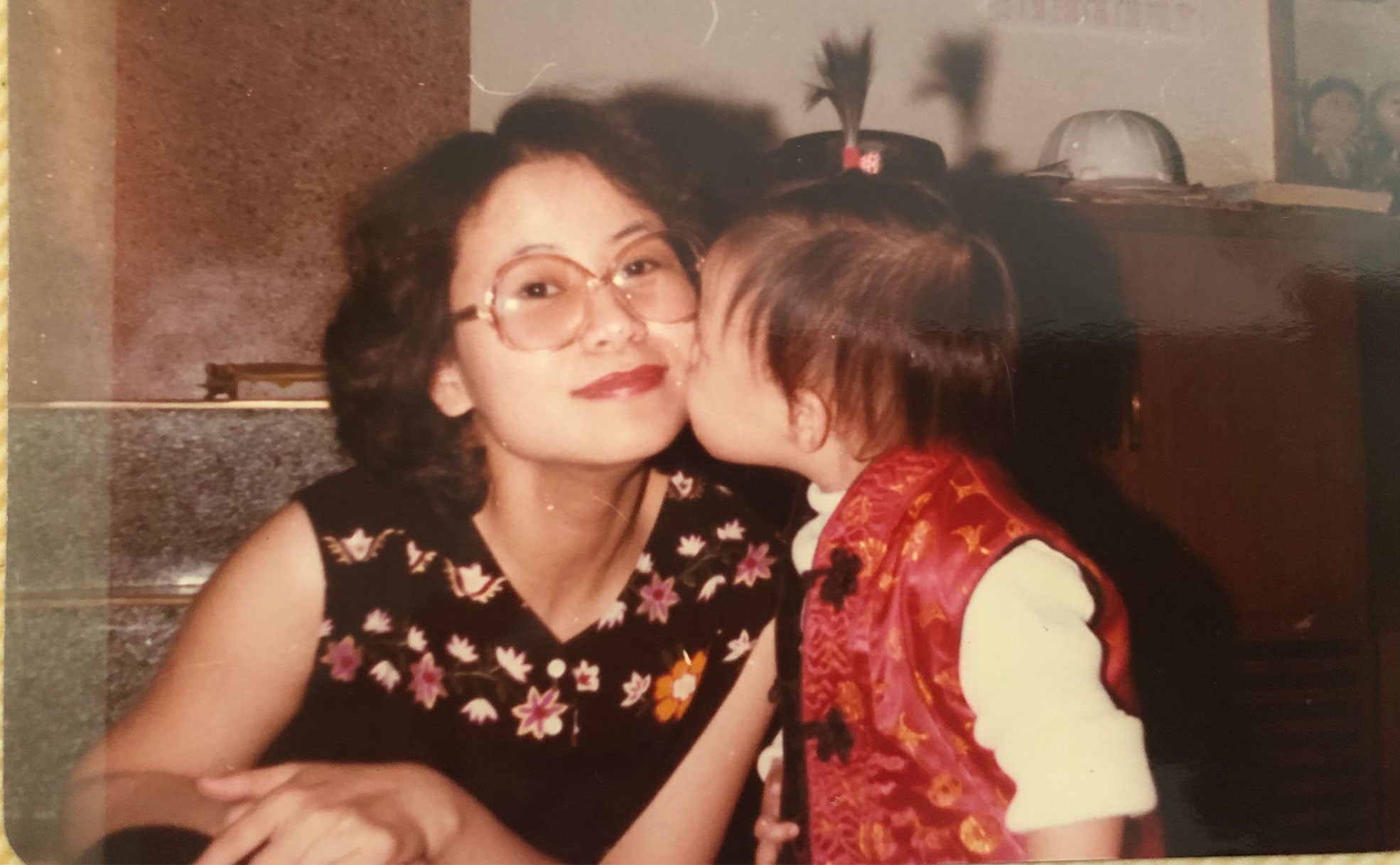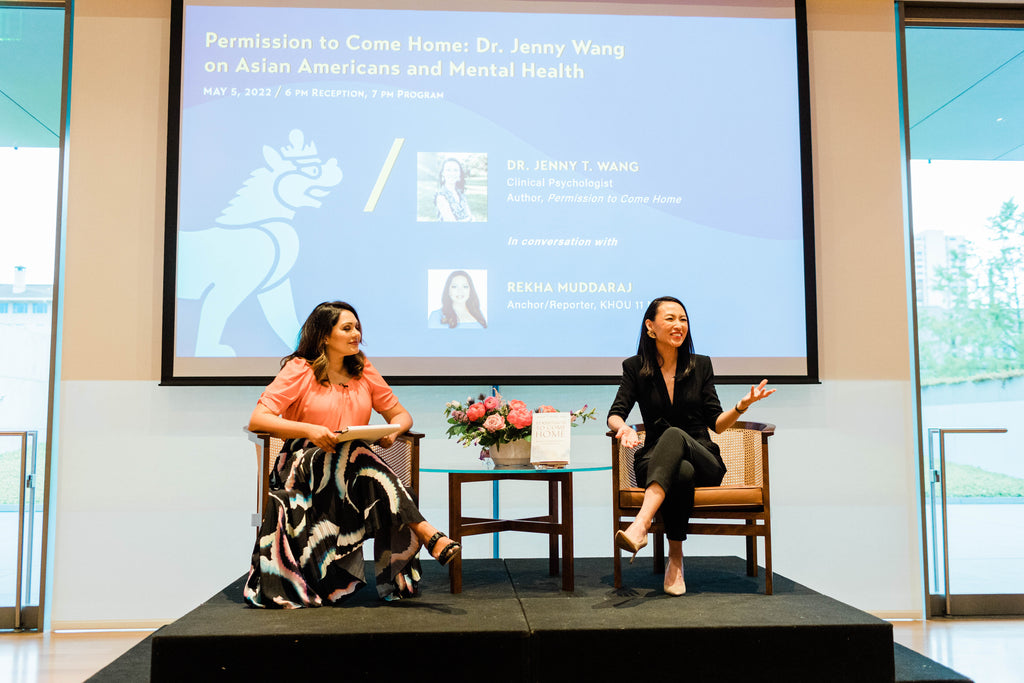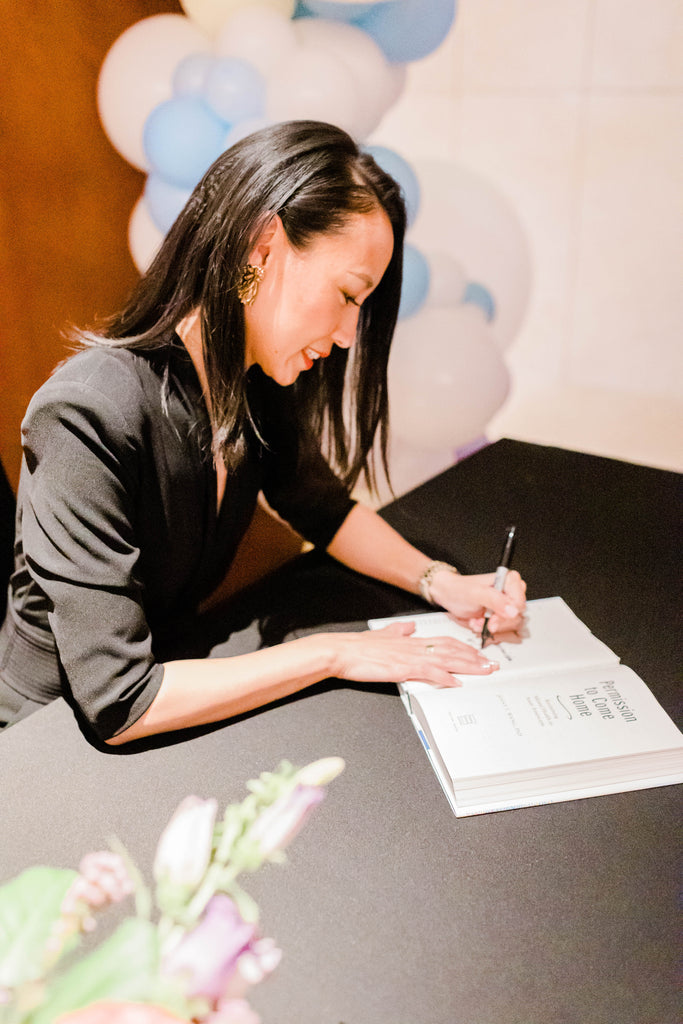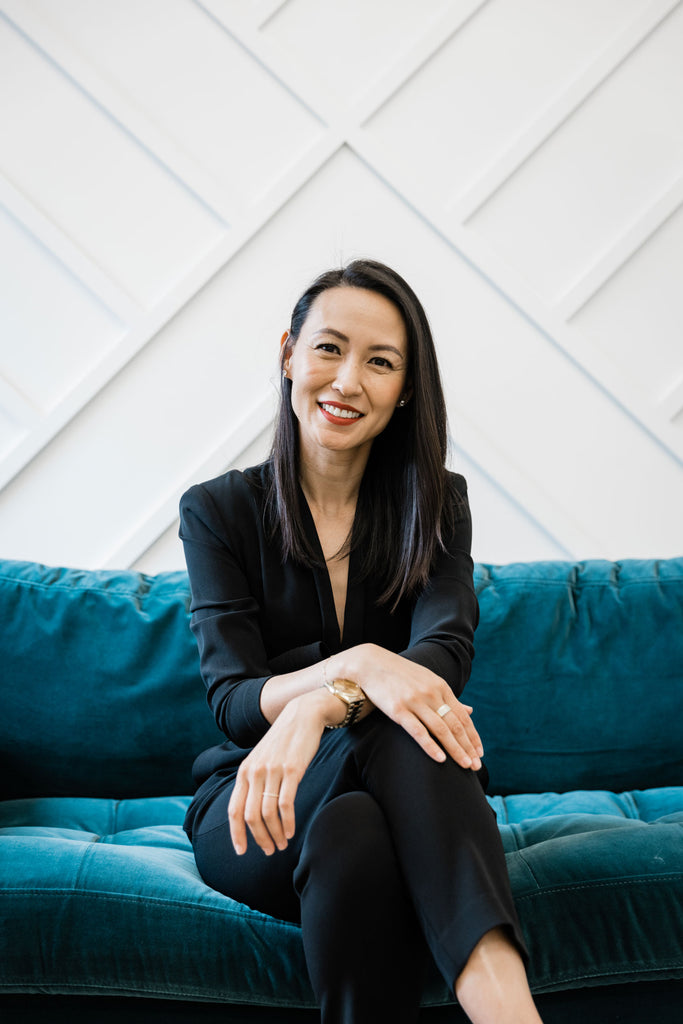
Reclaiming Mental Health as an Asian American
We face barriers as Americans in accessing equitable health care, including mental health care. It may be due to cost, time, or availability of providers but for many communities of color, there are further stigmas in seeking mental health care. Asian Americans are no exception.
Asian Americans are the least likely ethnic group to receive mental health treatment. KFF reports that only 25% of Asian adults with a mental illness received care in 2021 compared to 52% of White adults. And the rate of mental illness among Asian adults may actually be low due to underdiagnosis and underreporting.
A number of factors contribute to why AAPIs are among the least likely to seek mental health care. There is a community of immigrants who experienced some trauma in their home country before coming to the United States. When those traumatic experiences are passed down to the next generation, it affects how people feel, think, and behave. And for many Asian populations, mental issues can tend to be attributed to biological reasons.
We spoke with Dr. Jenny Tzu-Mei Wang who is behind the social media account @asiansformentalhealth, is a psychotherapist, and the author of “Permission to Come Home.” Through her work, she has increasingly seen the intersection of generational trauma and Asian American identity and its impact on mental health. We dove into the stigmas that exist against seeking mental health care and what is unique about mental health for the Asian community and those who are children of immigrants.

What does your professional psychology work focus on?
I'm trained as a clinical psychologist and have a solo practice here in Houston where I see primarily individuals of color. I would say 80% of my clients are Asian American identified. There really is a strong focus on intergenerational trauma on immigrant difficulties, acculturation, as well as Asian American identity and how that interfaces with mental health. So in my work, I feel like over the years has really become much more narrow in a way. But also, since this area of mental health is not very well explored from a clinical and research area, it feels like it's actually very wide at the same time. There are so many themes that resonate across many different communities and clients.
I also am a corporate nonprofit university speaker. I speak to organizations or groups within corporate settings as well as at universities trying to destigmatize mental health, but also offer people usable skills to promote mental wellbeing.
And then finally, I write and just recently wrote a book. So I’m really trying to help people get more accessible content and information to improve their mental health.

Why did you decide to focus on the AAPI community and what do you hope people take away from your account, @asiansformentalhealth?
I think the choice to focus on that really came from just my own identity being Taiwanese American. I think when you start a private practice, you open yourself as a generalist. But I think people saw that I was Asian and American, and just started coming to me because they wanted somebody who perhaps could understand some of their cultural background and stories, and also not have to explain everything. Asian Americans are not a monolith, so there are so many different diverse experiences. But there is a sense of resonance across communities that come from histories of migration. So I think the focus really was born out of feeling as though that was a part of myself. And that professionally and personally, I also had to hide for so much of my life and realizing that actually was a unique and really powerful part of my identity that made my work even more effective. That's my hope for our community is to say, I'm not going to be invisible anymore. And in fact, I can claim being a child of immigrants as a source of pride, as a source of honor. And that is my overall hope.
There is still a stigma against seeking mental health in the AAPI community. How do you address this and what can we do as individuals or a community to help alleviate that?
Yes, the stigma within Asian American culture is still very, very high. And even just in Asia, not just Asian American culture. Asians across many communities struggle with this, I think because there's a strong emphasis on this cultural idea of saving face. This idea that we represent more than just our individual selves; we represent our parents and how they parented us, we represent our community and what they stand for. So when we admit vulnerability, failures, and mistakes, it feels like we're bringing dishonor upon our families. I think that is one way that we could protect the reputations of those we love, but it comes at a very heavy cost.
Part of what I believe we can do individually and collectively, is to say, could we normalize that struggle? Negative emotion in conflict, those are all normal and actually healthy parts of human experience. When we can enter into those more messy spaces of our lives, we actually gain skills, and we learn about ourselves and what we're capable of. A lot of my clients who are Asian American will say, I do not do well with conflict. And that's a lot of times because we learned that conflict either was explosive and scary, or it was under a veil of silence. So people would say, suddenly, things would get to a breaking point, everything would explode, people are yelling, lots of emotion. And the next day, everybody acted like nothing happened. And it's such a common phenomenon.
When we don't return back to process conflict, we learn nothing about it, we have no plan for how to change in order to not have the conflict again, and we lose a lot of the negotiation skills that conflict invites us into. So part of all of this is helping our community say, it can get messy, but there is a way through it. And when we get through it, we're better people, we're better communities for it.
What is unique about mental health issues for those who are children of immigrants?
Pre-pandemic, [from my own] observations from my practice, or speaking with other Asian American clinicians, people often would seek out therapy for issues like life transition, “I'm not happy with a relationship,” “I have depression or anxiety,” - it would be very focal to the issue at hand. But after pandemic, in some ways Asian Americans went through what I would call a racial reckoning, where suddenly our racial identity became pushed to the forefront of media, of social media, of kind of a context, because of the pandemic and all the stereotypes and very hateful things that were done or said to Asian Americans. And so suddenly, you're on guard about your racial identity. You are now on high alert, because you're scared that you will be singled out [or] that you will be assaulted or harmed. And so, for many Asian Americans in the past, race was one of those peripheral ideas of their identity.
Now it's much more centralized. In my practice, people are writing in the referral question saying “I'm wanting to work on racial identity.” This is something that did not happen pre-pandemic for me. People were not coming to therapy saying I want to process my racial trauma, I want to talk about how my racial identity impacts my mental health. And the through lines in terms of racial identity, and the mental health piece is steeped in the ideas, the frameworks, the rules that we internalize from our parents, or from generations before us.
A very common idea is scarcity mentality. There's never enough, you need to save, save, save, you need to live life in a pretty stringent way, because you're not certain that you have any support or foundation for you. So we take less risks, we do not stick out, we don't self advocate, because we're just lucky to be here. And those narratives become part of what we internalize, and how we show up at work, and in our neighborhoods and in relationships. And so what was a trauma response of feeling scared and alone, that often our parents or previous generations felt when they came here is something that we're still carrying as we are living here. But we speak English more often than our parents or previous generations did. We have more education here or access to resources here. The context has changed, but our mentality may not have. That's an example of how that immigration journey that informs the mental health of people who are often second, third, fourth generation, are still carrying a lot of those frameworks.
What does being a child of immigrants mean for you?
For me, I think it means that I come from a lineage of people, that even though I may not have met them, I may not have lived in the homelands of where I came from, that their strength, their resiliency, their innovation, runs through my veins, and that I'm connected to something much greater than just my slice and time. Now, and I will say I didn't always feel this way, but being a child of immigrants is such a source of pride. And I'm honored to be a child of immigrants that I can draw from multiple facets of my identity, whether Taiwanese, whether American, or a synergy of both. And I think that's what our generation is doing. We're saying we're not hiding any part of ourselves. And with that, it allows us to be innovative in how we use those identity facets in conjunction with each other.
What kinds of changes have you seen in the last few years as it relates to mental health space for the Asian American community? What do you hope to see more of?
I would love to see more studies that are focused on exploring Asian American experiences, whether that's in parenting, education, learning, [or] mental health treatment modalities that are more effective in our communities. Obviously, Asian Americans for the longest time either were unlabeled, or “other” in a lot of research studies, or actually not even included. Now I think many more Asian Americans, or just researchers of all backgrounds are saying, actually, we need to understand Asian Americans.
But beyond that, we need to understand how different ethnic groups show up in a lot of those questions. Because somebody who comes from a Filipino American background will have a very different experience from somebody who comes from Pakistan, and is a recent international student. There are so many nuances and I hope that in the research and clinical areas, we're able to see the nuance because we have the data to support it.
I also would love to see another generation of Asian American clinicians really rise up. Asian Americans in the field of mental health is [sic] actually not an anomaly, but it's actually something that's highly valued. I think we, in Asian culture, always jokingly say that doctors are highly valued, or, you know, dentists, or all these other health professions. Very rarely are Asian parents very proud that their kids are in mental health. I would love to see that change, to say that there's a community that is wanting and longing to be served by clinicians that look like them, that they resonate with, and that we can encourage high school students, college students and beyond to pursue these as viable careers that they can feel proud of. I think there are some students who pursue it and don't even tell their parents because it feels like such a stigmatized field to go into. So I'd love to see the narrative change about pursuing mental health as a career.
And then the final thing is how do we increase access to mental health across the board for all people? But then also what does that look like in the Asian community? And how do we actually utilize the networks and communities that already exist like community centers, ballroom dance halls, [or] senior centers where there already are gatherings of Asian Americans. How do we just simply add mental health as a facet of their experience? I think about the villages or the communities that our ancestors came from. You would go to the market, and everybody would know each other, and you would share skills and stories and all the gossip. But that's where you learned about the world - through these hubs and gathering spaces. And what if mental health was a facet of that hub for our communities?

This quarter, we are donating a portion of profits from sales to Dr. Wang's chosen cause partner, the Asian Mental Health Project, which aims to educate and empower Asian communities in seeking mental health care. To learn more about Dr. Wang's work, follow her on @asiansformentalhealth on Instagram.